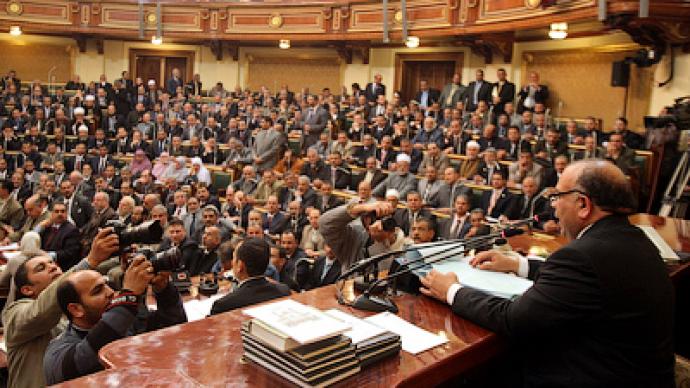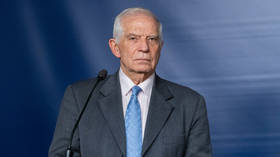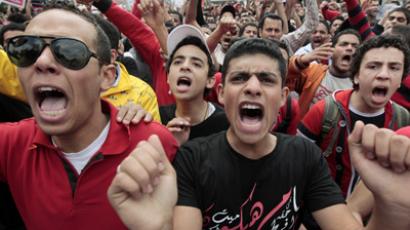Islamist grip on Egypt may tighten: Muslim Brotherhood eyes presidency

Egypt’s Muslim Brotherhood, an influential group holding half of the seats in the new parliament, may field a candidate for the May presidential election. The move would break an earlier promise not to seek presidential power.
The movement said it would not contend for Egypt’s highest office as part of power-sharing agreements among the country’s leading powers. It was meant to alleviate fears among domestic liberals and the military, as well as Western allies, that the country would fall too much under Islamist control.The situation may change now, Mahmoud Hussein, the Brotherhood's general secretary told AP, as the group is “forced to consider the option of fielding a candidate from its own ranks.”The Muslim Brotherhood wants to ensure that the future president is not openly hostile to the parliament they control. However the ruling military council is acting under the radar to ensure that none of the people running for the presidency endorses the Brotherhood as an ally, Hussein alleged.The generals earlier used their transitional period power to reject a new parliament-approved cabinet and keep the one they hand-picked last November.The local media point to Khairat al-Shater, the Brotherhood’s chief financier and political strategist, as the possible candidate from the group. The decision on whether to join the campaign now may come as early as Friday, Egyptian media say.However joining the race less than two months before the election date of May 23-24, eight months after the leading candidates, may be over-the-top even for the Brotherhood. It risks losing its hard-won public support if their candidate fails. Shater technically is not eligible to become Egypt’s president due to a Mubarak-era criminal conviction. Supporters, however, expect that to be annulled.Also fielding a candidate now would be considered double standard by many in the Brotherhood’s ranks. The group earlier expelled one of its leaders Abdel-Moneim Abolfotoh, who submitted his candidacy despite the Brotherhood’s objection.He is popular among the younger members of the Brotherhood and considered a reformer and a bitter rival of Shater. Throwing its support behind Abolfotoh may also be an option for the movement, especially since it would prevent a possible split.The Muslim Brotherhood surged to power following decades of living in shadows as an illegal organization under the rule of President Hosni Mubarak. Their supporters were instrumental in the public uprising, which ousted the president from power last year.














